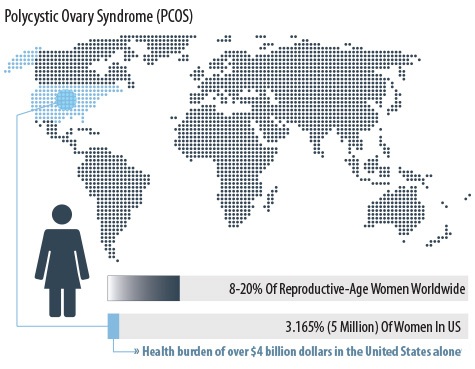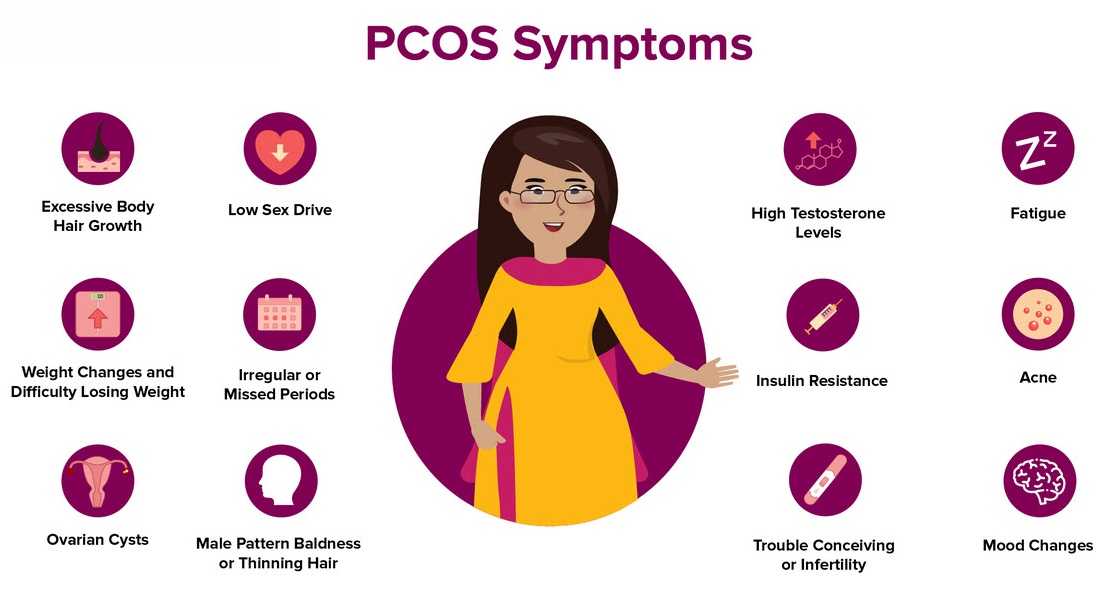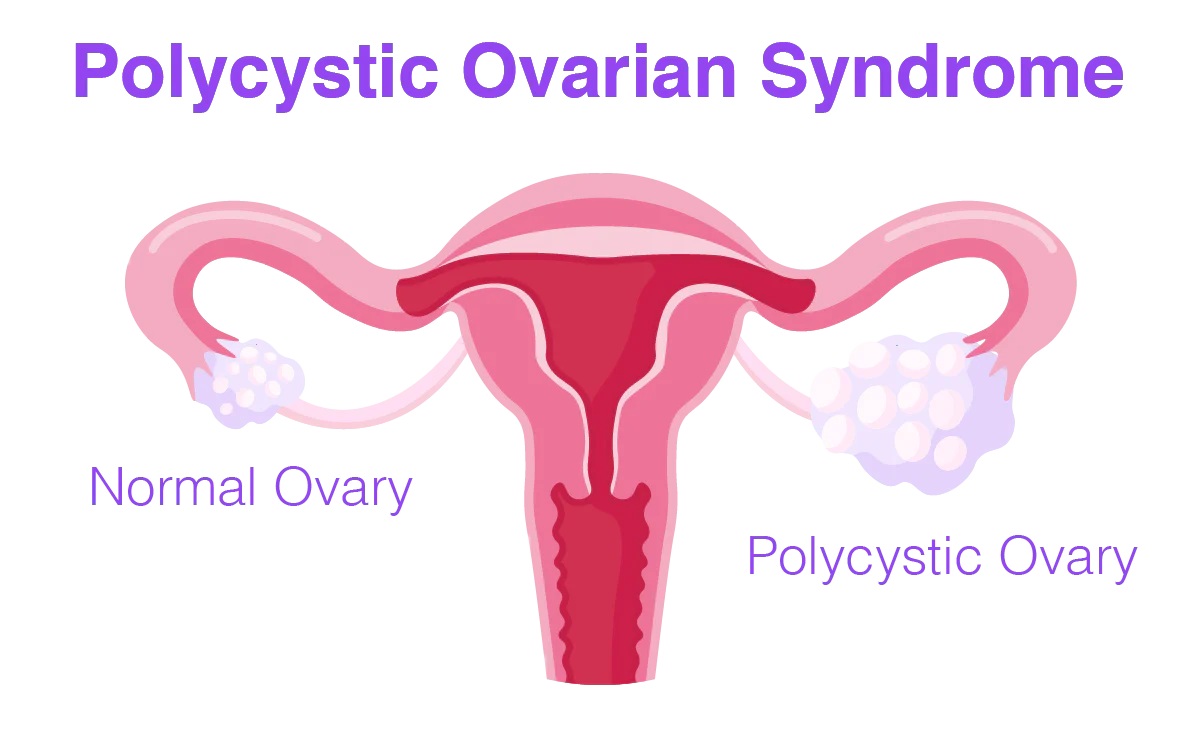Understanding PCOS

Polycystic Ovary Syndrome (PCOS) is one of the most common hormonal disorders among women of reproductive age in the United States, affecting an estimated 1 in 10 women—that's over 5 million individuals nationwide. It's a growing public health concern, not just for its impact on fertility, but for its long-term risks including diabetes, heart disease, and mental health challenges.
While the exact cause of PCOS remains unclear, research points to a mix of genetic predisposition and environmental triggers—especially insulin resistance and obesity. The modern American lifestyle, shaped by urbanization, processed diets, and sedentary routines, has fueled the rise in PCOS cases across the country.
Polycystic Ovary Syndrome (PCOS) affects millions of women across the United States and often goes undiagnosed for years. Common symptoms include:
- Irregular menstrual cycles
- Excessive hair growth (especially on the face, chest, or back)
- Persistent acne
- Polycystic ovaries visible on ultrasound
- Type 2 diabetes — due to insulin resistance
- Fatty liver disease — including nonalcoholic steatohepatitis (NASH)
- Infertility — PCOS is one of the leading causes
- Cardiovascular disease — elevated risk due to metabolic complications
 Managing Polycystic Ovary Syndrome (PCOS) in the United States centers on lifestyle modifications—including weight management, a balanced diet, and regular physical activity—as foundational strategies to reduce symptoms and improve long-term health. For many, medications such as hormonal therapies, insulin sensitizers, and anti-androgens are prescribed to regulate menstrual cycles, address acne and hair growth, and manage associated conditions like type 2 diabetes and infertility.
Managing Polycystic Ovary Syndrome (PCOS) in the United States centers on lifestyle modifications—including weight management, a balanced diet, and regular physical activity—as foundational strategies to reduce symptoms and improve long-term health. For many, medications such as hormonal therapies, insulin sensitizers, and anti-androgens are prescribed to regulate menstrual cycles, address acne and hair growth, and manage associated conditions like type 2 diabetes and infertility.
Public awareness and support systems are critical to improving outcomes. Urban areas have seen a rise in support groups, counseling services, and educational programs, often led by organizations like PCOS Challenge and the PCOS Awareness Association. These initiatives help women navigate the emotional and physical complexities of PCOS, reduce stigma, and foster community.
However, rural communities continue to face significant barriers:
- Limited access to specialized care and endocrinologists
- Fewer educational resources and support networks
- Higher rates of undiagnosed or misdiagnosed cases due to lack of awareness
Ongoing U.S.-based research is exploring innovative treatments, from metabolic therapies to fertility interventions, and is increasingly focused on health equity, ensuring that care reaches underserved populations.

Recent advances in research have highlighted the importance of early intervention, lifestyle changes, and personalized medicine in managing PCOS. Technology, such as telemedicine and mobile health apps, is being used to improve access to care and support for women with PCOS. Collaboration between healthcare providers, policymakers, and the public is crucial for addressing this growing health challenge in India.
Reclaim Your Energy, Confidence, and Cycle
What My Clients Say
Alyssa, 26
Amanda, 22
Chelsea, 36
Videos on PCOS / PCOD
Science-Backed PCOS Help Is Just a Click Away